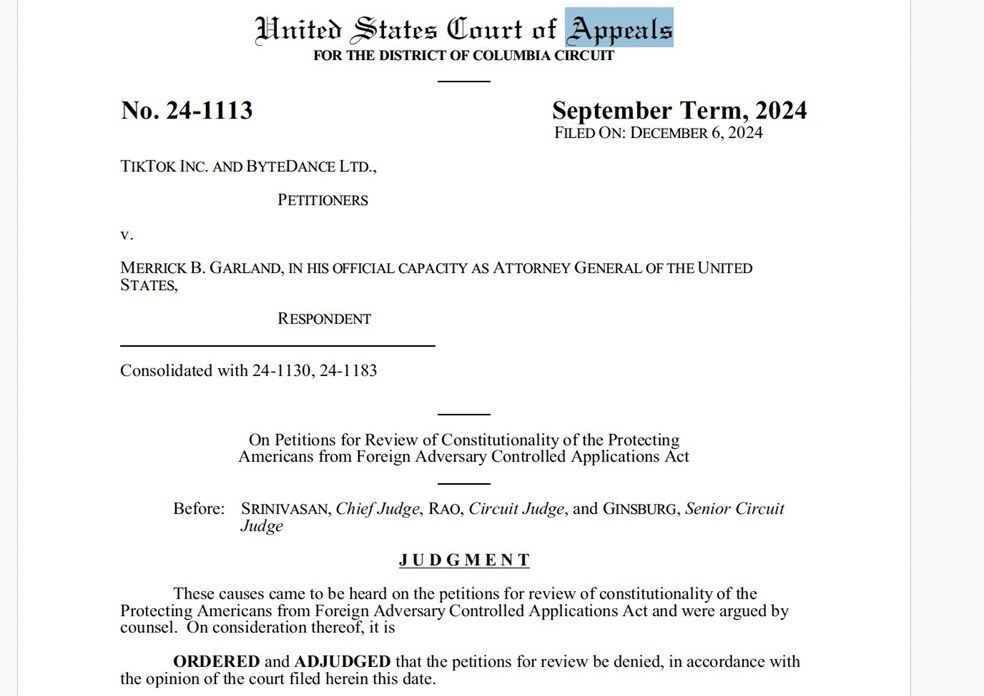Washington: TikTok’s legal battle to prevent a ban or forced sale of its operations in the United States has suffered a major setback.
A federal appeals court has rejected the company request to overturn a law that mandates the removal or sale of the app by early 2025, citing national security concerns over its ties to the Chinese government.
TikTok had argued that the law, which it claims infringes upon the free speech of its 170 million US users, was unconstitutional. In its appeal, the company described the law as a “staggering” threat to free speech, particularly for its American users. However, the court upheld the law, asserting that it was the result of “extensive, bipartisan action by Congress and successive presidents” aimed at addressing national security risks linked to the app’s Chinese ownership.
Despite the court’s ruling, TikTok has vowed to continue its legal fight, planning to take the case to the US Supreme Court.

The dispute centers on accusations that TikTok’s parent company, ByteDance, has ties to the Chinese state, a claim both TikTok and ByteDance have consistently denied.
US lawmakers have expressed concern that TikTok could be used by the Chinese government for espionage or influence operations, though TikTok insists it operates independently and complies with US laws.
At the same time, companies like Meta, which owns Facebook and Instagram, are positioning themselves to benefit from a potential TikTok ban. Meta has already introduced features similar to TikTok’s short-form video format across its platforms.
However, TikTok’s highly sophisticated algorithm and the massive infrastructure required to support it are not easily replicated.
As TikTok continues to fight the legal battle, the outcome remains uncertain. If the Supreme Court upholds the lower court’s ruling, the social media landscape in the US could undergo dramatic changes, with significant implications for both users and competitors.



